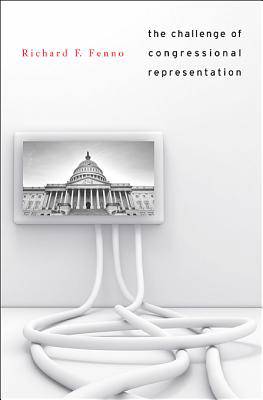
- Retrait gratuit dans votre magasin Club
- 7.000.000 titres dans notre catalogue
- Payer en toute sécurité
- Toujours un magasin près de chez vous
- Retrait gratuit dans votre magasin Club
- 7.000.0000 titres dans notre catalogue
- Payer en toute sécurité
- Toujours un magasin près de chez vous
Description
At a moment when Congress is widely viewed as hyper-partisan and dysfunctional, Richard Fenno provides a variegated picture of American representational politics. The Challenge of Congressional Representation offers an up-close-and-personal look at the complex relationship between members of Congress and their constituents back home.
When not crafting policy in Washington, the 435 members of the U.S. House of Representatives are busy assessing and building voter support in their districts. Fenno delves into the activities of five members of the House--Republicans representing Pennsylvania and New York, and Democrats from California, Florida, and Illinois. Spanning the ideological spectrum, these former and current representatives are senior lawmakers and rookie back-benchers from both urban and rural areas. Fenno travels with them in their own political territories, watching and talking with them, conducting interviews, and meeting aides and constituents. He illuminates the all-consuming nature of representational work--the complicated lives of House members shuttling back and forth between home and Capitol, building and maintaining networks, and making compromises. Agreeing to talk on the record without protective anonymity, these elected House members emerge as real personalities, at once praiseworthy and fallible.
While voting patterns and policy analysis constitute an important window into the legislative process, the nonquantifiable human element that political scientists so frequently overlook is the essence of negotiation. Fenno focuses our attention on how congressional leaders negotiate with constituents as well as with colleagues.
Spécifications
Parties prenantes
- Auteur(s) :
- Editeur:
Contenu
- Nombre de pages :
- 272
- Langue:
- Anglais
Caractéristiques
- EAN:
- 9780674072695
- Date de parution :
- 01-04-13
- Format:
- Livre relié
- Format numérique:
- Genaaid
- Dimensions :
- 165 mm x 236 mm
- Poids :
- 544 g

Les avis
Nous publions uniquement les avis qui respectent les conditions requises. Consultez nos conditions pour les avis.






